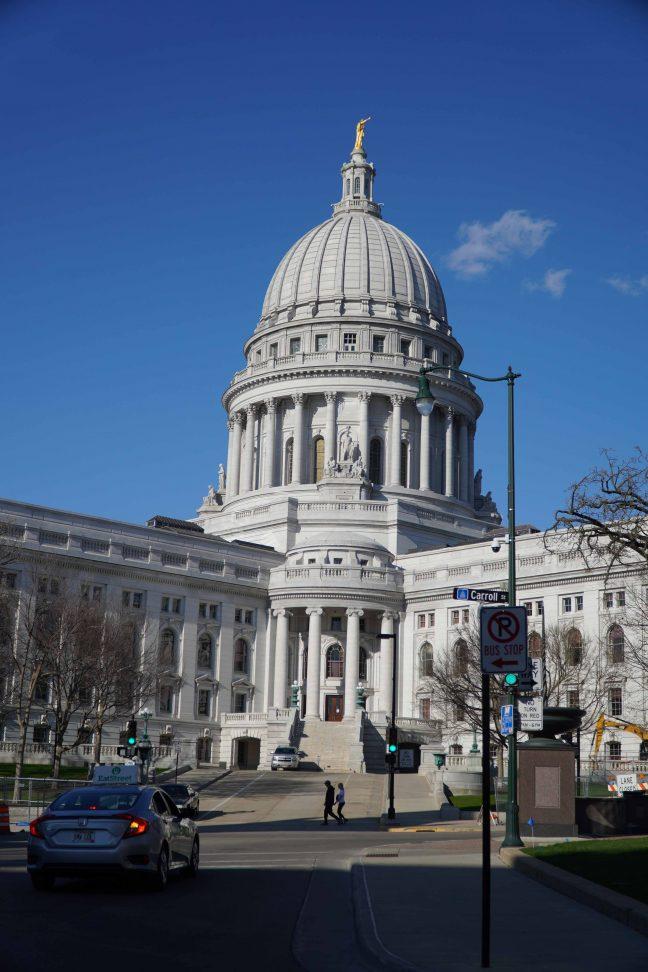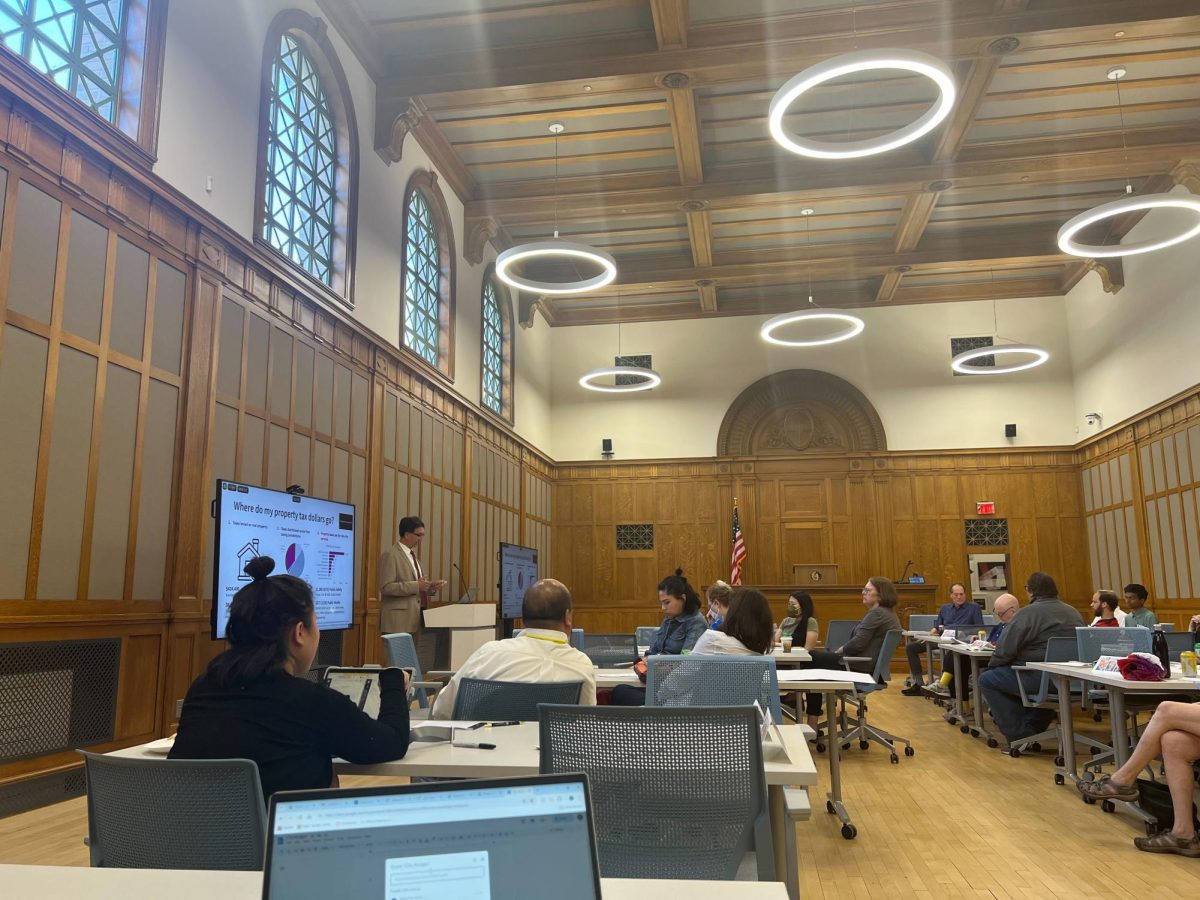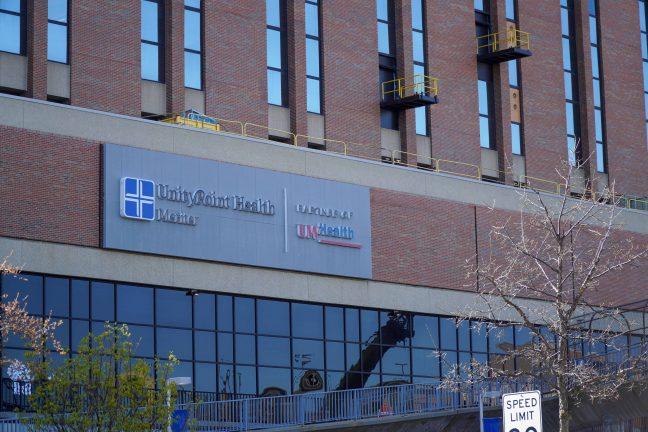The City of Madison’s 2024 budgets proposed by Mayor Satya Rhodes-Conway will designate funds for city services, the initiation of large development projects and how they will be paid for through property taxes, according to the City of Madison.
Introducing two budgets for 2024, Mayor Rhodes-Conway has allocated funds for projects and programs and services and staff positions in the City of Madison.
The 2024 Capital Budget will allocate funding for city planning and development, public works, and transportation programs, totaling $266 million, a $110 million decrease from last year’s budget.
The second release is the record high Operating Budget. The plan will prioritize funding to Madison’s Public Safety and Health, debt service, and transportation programs, totaling to $404.8 million, a $22.8 million increase from the last operating budget.
The proposals come in the face of a potential $28.3 million city budget gap, according to Madison Finance Director David Schmiedeke.
“The $28 million gap was the initial gap back in the spring when we compared the costs to continue with our ongoing revenue estimates. The mayor proposed an executive operating budget in October which was a balanced budget,” Shmiedeke said. “It looked at our revenue sources, and it looked at remaining federal fiscal relief funds from the American Rescue Plan Act. It also applied some of our funds to balance our reserves and some other one time funds to balance that budget.”
On the structural deficit caused by an imbalance of city revenue and expenditures, Schmiedeke said that property taxes are Madison’s key source of revenue.
But, the city’s ability to address the structural deficit through property tax is limited by the state, which controls how much local governments can increase property taxes throughout Wisconsin, Shmiedeke said.
Wisconsin communities’ ability to generate revenue stands in contrast to other cities and municipalities throughout the country, Schmiedeke said.
“In Wisconsin, rather than have those local option taxes, the idea for decades has been that the state would collect sales and income taxes and share them with the local government, and that sharing hasn’t kept pace with inflation,” Shmiedeke said.
Madison Public Market receives $2.64 million in additional funding
The disbursement of allocated funds to local governments generated by sales and income taxes has actually decreased over the past 20 years until the most recent state budget, Schmiedeke said.
The new legislation brought by this years’ state budget provided the largest increase in these shared revenues in many years. But, upon disbursement of the funds, Madison received the lowest amount per capita of any community in Wisconsin, Schmiedeke said.
According to University of Wisconsin assistant professor of Public Affairs Ross Milton, Wisconsin’s taxpayers are the main stakeholders in the structural deficit issue.
Increases in property taxes are an unpopular method of generating tax revenues amongst taxpayers relative to other means of increasing revenue such as income taxes, which most people perceive to be more fair, Milton said.
“There’s sort of a resistance to higher taxes, but at the same time I think many of us moved here because we perceived it to be a place that has a strong set of public services that we like, and those cost money to run. So there’s obviously a trade off there,” Milton said. “If the city decides to try to go to a referendum in the next few years, which I think seems more and more likely, those sorts of issues will sort of come to a head in terms of a robust public debate.”
Dane County Regional Airport to offer direct flights to new Florida hotspots
With regards to assessing Madison’s long term financial health and sustainability given the current challenges and budgeting constraints, Milton said there are different ways to think about what sustainable budgeting and governance means for the city.
One method of doing so falls into the resident’s responsibility, where everyone should be looking at the city to evaluate whether the elected officials are doing a good job with respect to making sustainable financial decisions, Milton said. This includes taking on debt when it makes sense to do so, but not when it doesn’t.
“That doesn’t mean that we shouldn’t take on debt because in some cases it makes a lot of sense for governments to fund major investments that we think are going to benefit the city for a long time through debt financing,” Milton said. “But there’s always a risk that we take on too much debt, which can then saddle future generations with costs that they’re not benefiting from anymore.”
In terms of Madison’s contingency plans in the case of a potential widening of the budget gap or if state financial regulations become more restrictive in the future, there are some measures that could be taken to mitigate said events as opposed to pushing towards increasing city property taxes, Shmiedeke said.
“We do a budget every year and we have to have a balanced budget. Those are issues we analyze every year, and we do have reserves in the event that we have an unforeseen emergency,” Shmiedeke said. “Those include redesigning employee health insurance plans, so that employees actually pay more and raising certain fees and putting into place new charges for services. We’ll probably have to continue looking at that.”
Rhodes-Conway’s Operating Budget proposal seeks to provide the best quality service for the common good of the city’s residents and guests, according to the budget’s vision.
On Nov. 14th, the final vote for both budgets was taken by the City of Madison Common Council, according to The Cap Times. The Capital Budget was confirmed totaling at $273.1 million, $6.6 million more than its original proposal and the Operating Budget was confirmed totaling just over $405 million, around $592,000 more than its original proposal.
The 2024 Operating Budget has been set as the largest in the city’s history and is higher than the 2023 budget by around $23 million, according to the Cap Times.


















